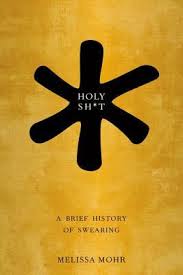Although Andersen Library has offered a variety of ebook collections for many years, this year we are finally launching into the ebook orbit in earnest.
EBSCO eBook Collections
In July, we began a subscription to EBSCO’s eBook Academic Collection which gives us access to 113,000 academic and association press books in a wide range of subject areas. As with our older eBook Collection – EBSCO (formerly netLibrary), these are our first ebooks that are actually downloadable. Our other ebook titles allow users to read the books online.
The older EBSCO ebook records are already in HALCAT. But the best way to search all the EBSCO ebooks is directly through this link that will search both databases. The goal is to eventually have all our ebook records in HALCAT so they can be “discovered” along with the print books.
Wiley Online Library Pilot
Because ebooks from other UW libraries cannot be borrowed via Universal Borrowing as can print books, the UW System has investigated ways to purchase ebooks jointly so they’re available to all UW users. This year, the UW System is conducting a pilot of the Wiley Online Library. Based on our usage of this collection over the year, the UW System will collectively purchased a set of titles from Wiley that will be permanently available to all UW users. The Wiley records will be loaded into Research@UWW, our new discovery tool, but won’t be loaded into HALCAT. The Wiley Online Library also includes access to 1,200 scholary journals in the sciences, social sciences and humanities.
Other eBook Collections
- ABC-CLIO – this collection includes mainly history titles
- ACLS Humanities E-book – this collection includes mainly history titles
- eBook Academic Collection (EBSCO) – more than 100,000 academic books, including many reference titles
- eBook Collection (EBSCO) – this ebook collection contains thousands of e-books including many reference titles
- Encyclopedia Britannica Online – this comprehensive encyclopedia has current, in-depth articles on many topics
- Gale Directory Library – provides access to Gale’s authoritative directories inclduing Market Share Reporter and Directory of Publications and Broadcast Media are available in this platform
- Gale Virtual Reference Library – this resource has 150 reference books in areas like business, education, history, literature, medicine, sciences and social sciences
- Oxford Reference Online – more than 200 dictionaries, encyclopedias and guides provide short articles on art, business, history, law, literature, medicine, performing arts, philosophy, religion, science
- Sage eReference – this is a small collection of ereference titles in psychology, sociology, education, and science
- Salem History – this is a small collection of ereference titles in history
- Salem Literature – this is a small collection of ereference titles in literature
- Salem Science – this is a small collection of ereference titles in science


 Search
Search 


